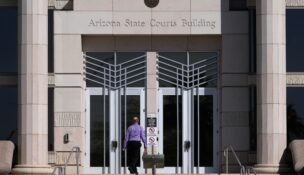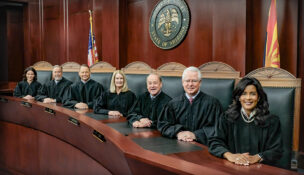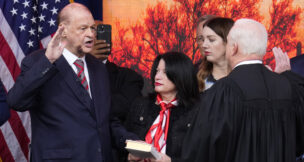Corporation Commission defends exempting power plant from environmental review
Reagan Priest Arizona Capitol Times//October 17, 2024//
Corporation Commission defends exempting power plant from environmental review
Reagan Priest Arizona Capitol Times//October 17, 2024//
The Arizona Corporation Commission is denying claims made by Attorney General Kris Mayes and two environmental groups about the commission’s decision to exempt a power plant expansion from environmental review.
In three responses filed on Oct. 14 to three lawsuits, the commission asked Maricopa County Superior Court to dismiss the complaints and affirm the decision to exempt Unisource Energy from obtaining a Certificate of Environmental Compatibility on its planned expansion of the Black Mountain Generating Station in Golden Valley, near Kingman.
Mayes, the Sierra Club and Western Resources Advocates filed suit in August, saying the commission misinterpreted a statute governing power plant expansions and reversed decades of precedent set by previous commission votes.
The dispute revolves around the commission’s June decision to overturn a ruling from the Arizona Power Plant and Transmission Line Siting Committee that required UNSE to obtain a Certificate of Environmental Compatibility for four new generators that are each 50 megawatts.
Under state law, plants with a nameplate rating of 100 megawatts or more must obtain a Certificate of Environmental Compatibility. UNSE argued that it should not have to obtain a certificate because each individual generator is less than 100 megawatts.
In its filing, the commission emphasized that state statute defines a plant as “each separate” … “generating unit,” which would not require a certificate for the expansion of the Black Mountain Generating Station, despite the total rating of the four generators adding up to 200 megawatts.
The commission said Mayes and the environmental groups were misunderstanding state statute and said the commission does not rely on precedent when making decisions. The commission also said utility companies have voluntarily obtained the certificates, so the UNSE case marked the first time the commission was asked to determine whether one was necessary.
In its response to Mayes’ complaint, the commission accused her of attempting to rewrite the statute via interpretation and said the Legislature would have to update the statute if there was a “hypothetical problem” with its implementation.
Mayes had accused the commission of creating “ambiguity in the law,” but spokespeople for the commission have said multiple times that the law left little room for interpretation.
“The Commission followed the letter of the law as written,” said Tom Van Flein, the commission’s general counsel, in a written statement provided in August. “Policy advocates wanted a different interpretation for policy reasons. That remains the purview of the Legislature.”
A spokesperson for the commission declined to comment on its responses in the case.
Autumn Johnson, an attorney who represents the Arizona Solar Energy Industries Association in cases before the commission, said she thought the responses were “kind of absurd.” The solar group participated in the UNSE case when it was before the commission, but did not join the other parties in filing suit.
Johnson said she disagrees with the commission’s claim that this is the first time it has dealt with this issue.
“I think that was one of the things that was puzzling to me and my clients … there’s never been an articulation as to why this is different now than it was before,” Johnson said.
Johnson also said the assertion that utility companies voluntarily request CECs is untrue.
“I don’t think the utilities thought that they were doing it voluntarily,” Johnson said. “I have been involved now in a handful of different line siting matters, and they never started making the point that it was voluntary until [this case].”
Mayes, the Sierra Club and Western Resources Advocates also accused the commission of violating Arizona administrative code by communicating with staff members like Van Flein – who were named as parties in the case – during an executive session. The commission denied those allegations and said the presence of staff in the executive session did not violate commission rules related to ex parte, or one-sided, communications.
Johnson said there’s been “a lot of confusion, historically,” on rules related to ex parte communications at the commission.
“It’s not clear to me that anyone really understands the rule or knows how to explain it,” Johnson said.
She attributes that confusion to recent changes in the commission’s legal team, which sparked controversy and even a lawsuit after the former head of the legal division accused commissioners of retaliation and discrimination.
A hearing has not been set in any of the three lawsuits and Johnson said she does not expect the case to conclude before the upcoming election, during which voters will fill three open seats on the commission. Johnson said she expects the cases to be consolidated and for the issue to bleed over into other branches of government.
“I think this will be an issue with the Legislature this session – it’s obviously an issue with the courts [and] it’s an election issue,” Johnson said.














































